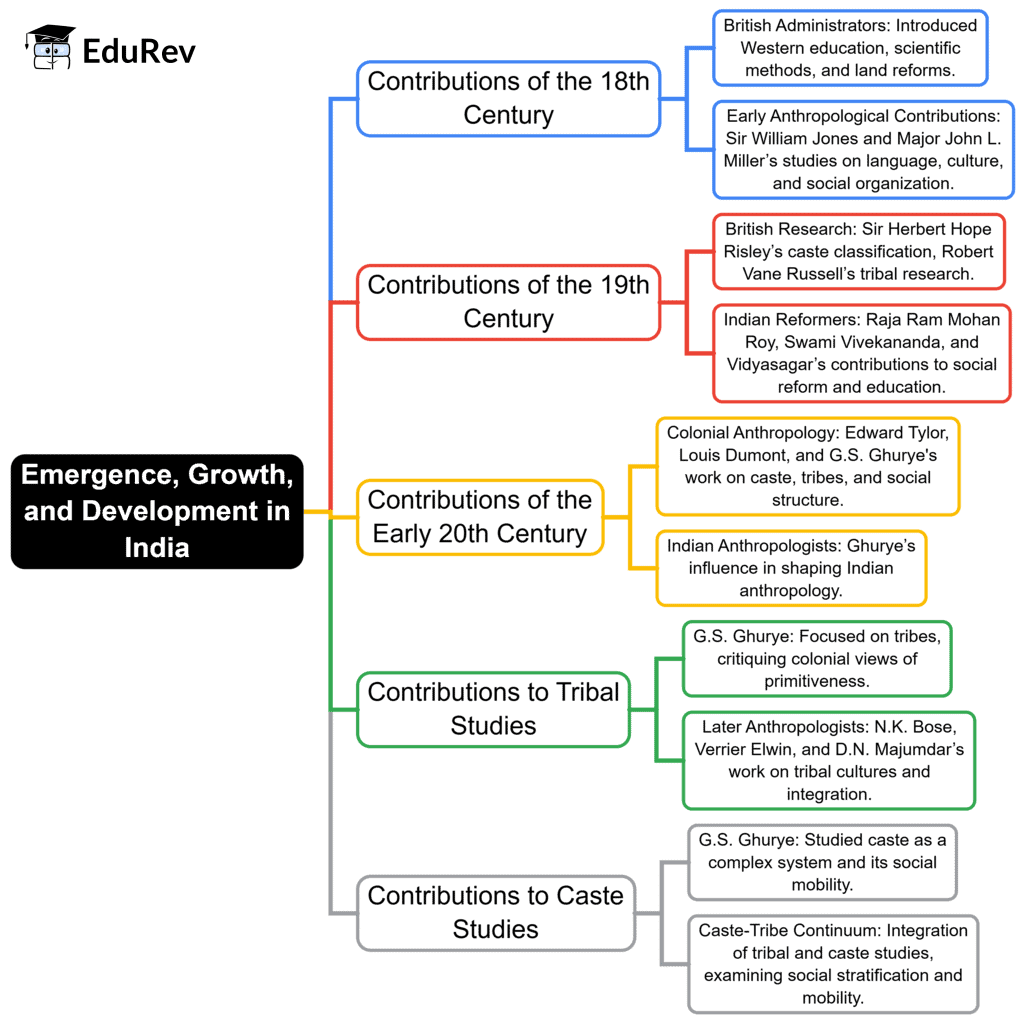UPSC Exam > UPSC Notes > Anthropology Optional for UPSC > Mind Map: Emergence and Growth of aAnthropology
Mind Map: Emergence and Growth of aAnthropology | Anthropology Optional for UPSC PDF Download

The document Mind Map: Emergence and Growth of aAnthropology | Anthropology Optional for UPSC is a part of the UPSC Course Anthropology Optional for UPSC.
All you need of UPSC at this link: UPSC
|
209 videos|299 docs
|
FAQs on Mind Map: Emergence and Growth of aAnthropology - Anthropology Optional for UPSC
| 1. What is the significance of anthropology in understanding human societies? |  |
Ans.Anthropology plays a crucial role in understanding human societies by examining cultural, social, biological, and archaeological aspects of humanity. It provides insights into the diversity of cultures and helps in understanding social structures, practices, and the evolution of human behavior. This holistic approach enables anthropologists to analyze how various factors shape societies and contribute to their growth and change.
| 2. How did anthropology emerge as a distinct field of study? |  |
Ans.Anthropology emerged in the 19th century as scholars sought to understand human diversity and the impacts of colonialism. Early anthropologists, influenced by natural sciences, began to categorize and study human societies systematically. The field evolved through the work of key figures such as Franz Boas, who emphasized cultural relativism, and Bronislaw Malinowski, who pioneered fieldwork methods, establishing anthropology as a distinct discipline.
| 3. What are the main subfields of anthropology? |  |
Ans.The main subfields of anthropology include cultural anthropology, which focuses on cultural practices and beliefs; physical or biological anthropology, which studies human evolution and biological diversity; archaeological anthropology, which examines past human societies through material remains; and linguistic anthropology, which explores the relationship between language and culture. Each subfield contributes unique perspectives to the understanding of humanity.
| 4. How does anthropology contribute to contemporary societal issues? |  |
Ans.Anthropology contributes to contemporary societal issues by providing critical insights into cultural conflicts, globalization, health disparities, and social justice. Anthropologists engage with communities to understand their needs and perspectives, helping to inform policies and practices. By highlighting diverse viewpoints, anthropology promotes inclusivity and helps address challenges related to identity, migration, and sustainability.
| 5. What role do anthropologists play in research and policy-making? |  |
Ans.Anthropologists play a vital role in research and policy-making by conducting ethnographic studies that reveal the complexities of human behavior and social interactions. Their findings inform public policy, community development, and social programs. By advocating for marginalized voices and emphasizing cultural sensitivity, anthropologists help ensure that policies are effective and respectful of diverse cultural contexts.
Related Searches
















